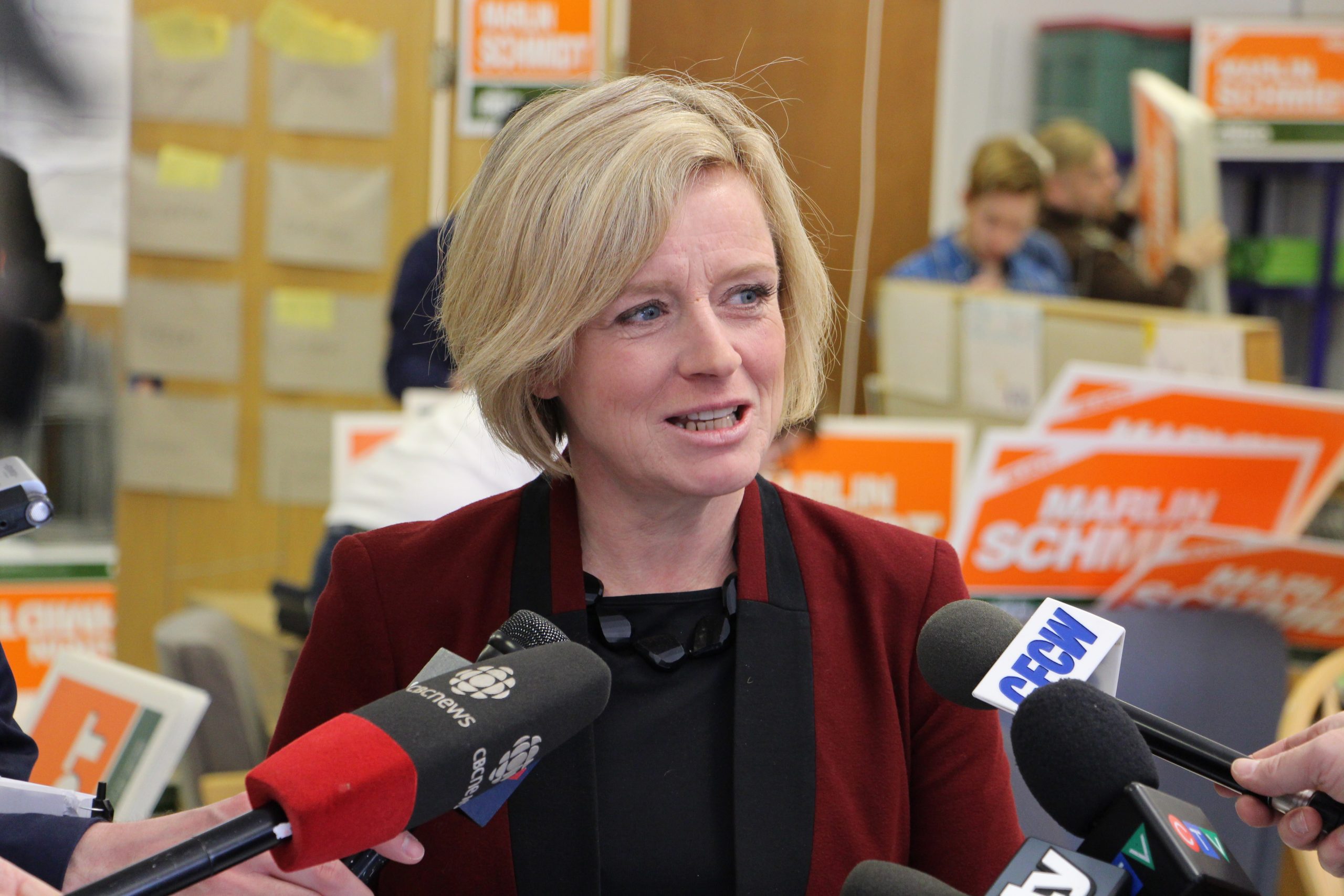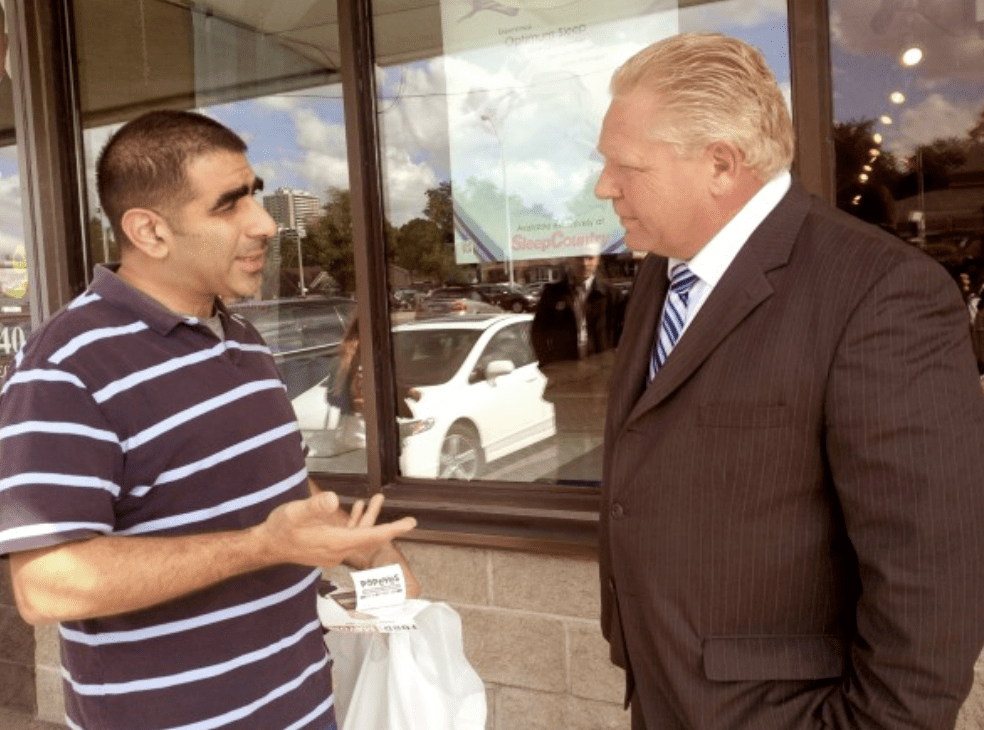Building pipelines, especially in Canada, is a slow process.
Politics is a fast moving game.
With a spring 2019 Alberta election looming, the glacial progress on the Trans Mountain Pipeline expansion has become a matter of political perception. The NDP government claims the legacy project, which will triple the Trans Mountain pipeline capacity and open up markets for oil sands oil, is taking its critical first steps. The United Conservative Party opposition is countering that a construction timeline that won't see any pipe in the ground until 2019 and no specified completion date is a travesty.
So for Premier Rachel Notley, a summery photo op last week of the ground-breaking at a Trans Mountain storage yard on Enoch First Nation land was just the ticket to reinforce her sunny message.
Even federal Natural Resources Minister Amarjeet Sohi and Kinder Morgan Canada President Ian Anderson couldn't resist the opportunity to attend despite the relatively small announcement. Enoch will get about 30 jobs and $6 million out of the storage yard.
But what better optics could there be: Actual shovels (wielded by politicians and dignitaries) in the ground and an Enoch Cree blessing ceremony to boot.
"The best way to sovereignty and true self-determination, for us, is through business," said Enoch Cree Nation Chief Billy Morin, who added each indigenous community has a right to its own stand on the pipeline.
Notley has a reputation as a consensus builder and this event had all the hallmarks, with business, Ottawa and First Nation participation. It allowed her to underscore the nuance sometimes missed in the national discussion that there isn't a totally unified indigenous stand on the pipeline debate.
But hanging over the otherwise cheery ceremony is that looming election date. The Trans Mountain still has an enormous way to go and the distance it has come so far is littered with controversy and unfinished court cases.
For UCP Leader Jason Kenney and his supporters, the deliberate pace dictated by regular construction work, including surveying and route preparation, plus those outstanding B.C. court challenges and environmental protests, looks like an advantage in the Alberta race to the polls. The last thing Kenney wants is for Notley to have a photo op installing the first length of pipe scant weeks before Albertans go to the polls.
"Not an inch of pipe will be laid on TMX (Trans Mountain Expansion) this year and they don't even have a completion date. This for a pipeline where construction was supposed to begin in Sept. 2017," was Kenney's Twitter comment after the Enoch event.
Kenney's chief tactic has been to attack the NDP's overly rosy statements on how much progress is underway, bringing up various government predictions on construction start dates and key benchmarks which have been missed. For obvious reasons he has to walk a line which avoids any suggestion he would rather, for political gain, not see progress on the Trans Mountain.
Instead he has launched a persistent volley of criticism not at his provincial opponent but at the Trudeau government.
The dynamic of Alberta politicians running two-pronged campaigns before elections, one on the provincial front and the other against a bullying federal foe, is nothing new. Provincial-federal posturing is a regular occurrence in the west. But Kenney's jump in 2016 from the federal to provincial political scene makes that tactic more convoluted.
The pipeline file, and its high stakes for all concerned, is a good case in point.
This week an acrimonious battle broke out on Twitter between Kenney and Sohi about which federal administration made the biggest hash out of the Trans Mountain approval: the Stephen Harper Tories or the Justin Trudeau Liberals.
The tit for tat Twitter battle just underscores a couple of political realities for both parties. Kenney must find ways to justify his federal cabinet record whenever it appears to not jibe with Alberta provincial priorities. Sohi, who represents the Edmonton Mill Woods constituency, also has an immense stake in the pipeline. His recent shuffle in the Trudeau cabinet from infrastructure to natural resources was obviously in aid of shoring up the Liberals' tenuous hold on three seats in Alberta. Sohi's job one is to navigate Ottawa's $4.5 billion purchase of Trans Mountain and ensure that progress on the expansion stays on track.
While other political issues may wax or wane before next spring, the question of which party has the ability to 'get 'er done' on the pipeline front is a dominant economic issue for Alberta voters.
And time is ticking down.








